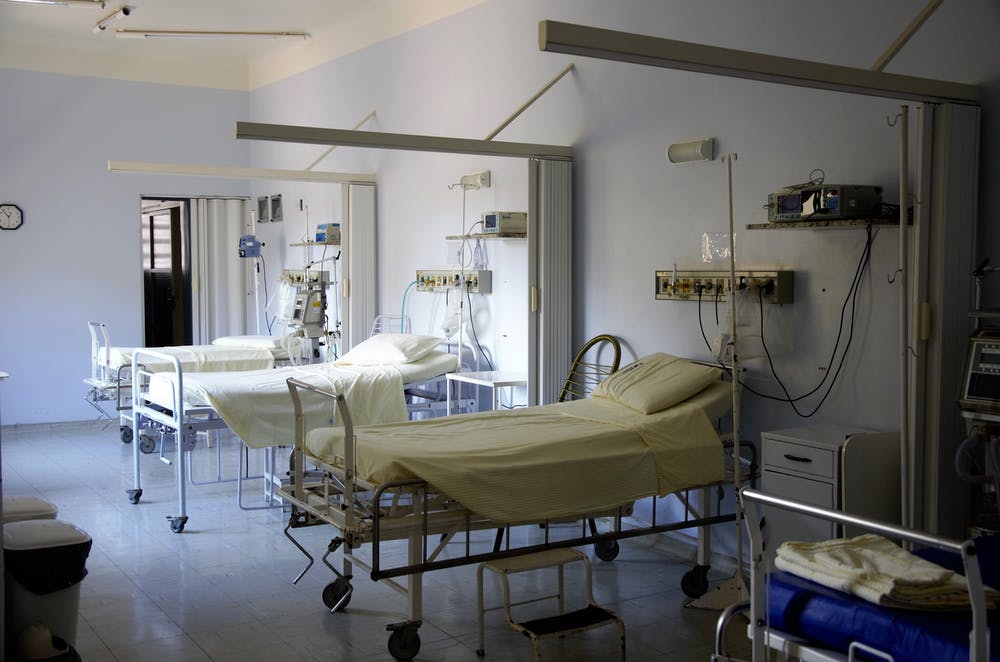


A nursing charity is calling for the government to provide more funding for equipment to prevent and treat pressure ulcers and more joined up IT across the Health sector, following an inquest into the death of an 81-year-old care home resident who arrived in hospital with a pressure sore one nurse described as "one of the most serious I've ever seen".
Pressure ulcers are damage to the skin that comes from sustained pressure, with the most serious cases resulting in full tissue loss, and potentially bone, tendon or muscle being exposed.
They can happen to anyone, but usually affect people confined to bed or who sit in a chair or wheelchair for long periods of time.
While there is an island-wide policy governing how people vulnerable to pressure sores should be looked after, the General Hospital's former tissue viability nurse told an inquest into the death of L'Hermitage care home resident Roland Edmund Baldwyn Childe that processes still needed improving today.
Charity Family Nursing and Home Care, which provides care in the community, said that prevention of pressure ulcers "would further be improved with the funding of appropriate equipment".
They described the need for pressure-relieving cushions and mattresses, adding that “the funding of dressings would promote optimum healing” of pressure ulcers.
The charity explained that pressure ulcers are “largely preventable and manageable” but admitted that this is “very dependent on the person’s involvement, their underlying conditions, and ability to access and fund appropriate pressure relieving equipment and care”.
Family Nursing and Home Care also raised concerns about the lack of shared IT systems used in healthcare across the island, explaining that “there would be significant improvement if there was a system enabling health professionals and carers to have the appropriate information to provide seamless care for an individual and support professionals adopting a joined up, multi-disciplinary approach”.

Pictured: Pressure ulcers usually affect people confined to bed or who sit in a chair or wheelchair for long periods of time.
The Deputy Viscount concluded the inquest into the death of Mr Childe last week by confirming that he would "write to various agencies to set out learning points in the hope that this may aid future policies" about pressure sores.
Mr Childe, who was known as Eddie, was taken from his care home to the Emergency Department a month before his death with a severe chest infection and sepsis. He had also been suffering from dementia and Parkinson’s Disease for five years.
Although Mr Childe’s sepsis was successfully treated, he developed aspiration pneumonia and died naturally at the Hospital on 13 August 2019.
Aspiration pneumonia due to Parkinson’s Disease was given as the primary cause of death, but Dr Michael Richardson, a consultant physician at the Hospital, also described an infected pressure sore he had as "a significant contributory factor" to his death.
The inquest heard that education around the issue of pressure sores had improved since Mr Childe’s death in 2019, particularly following the introduction of an Island-wide Pressure Ulcer Prevention and Management Framework in 2021.
However, Family Nursing and Home Care confirmed that Mr Childe’s death had "helped to identify the need for further detail within the framework" — which is due to be reviewed this year.
The charity explained that “further detail surrounding escalation and clinical pathways will help to clarify responsibilities” in the revision of the framework, after Advocate Mark Harris admitted at the inquest that more could have been done with the benefit of hindsight.
"Could more have been done?" the Deputy Viscount asked. "With the benefit of hindsight, yes, probably. Any of the agencies involved could have escalated the issue."
Family Nursing and Home Care said that this year’s review of the Island-wide Pressure Ulcer Prevention and Management Framework “will ensure the content is updated in line with National and International consensus guidelines on the prevention and management of pressure ulcers by promoting and engaging with professionals, patients, and carers in the process”.
Death of 81-year-old to "aid future policies" on bed sore care
Safeguarding concerns raised after death of pensioner with "serious" bed sore
Inquest to determine if elderly man's bed sore care was correct
Comments
Comments on this story express the views of the commentator only, not Bailiwick Publishing. We are unable to guarantee the accuracy of any of those comments.